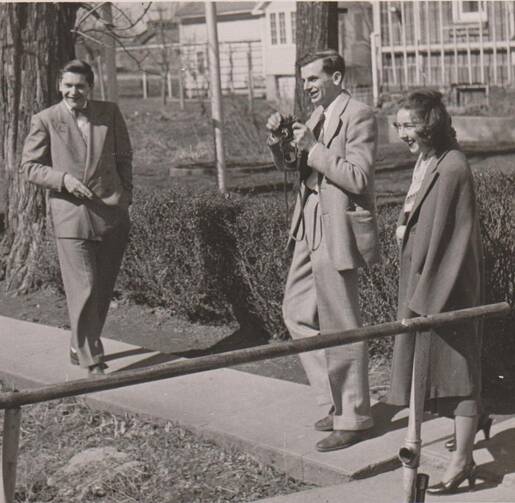In the years following my baptism as a teenager, I had a lot to learn in order to pass for a Roman Catholic follower of Christ—prayers, motions, habits of mind. I had to cultivate friendships with saints, acquire rosaries and read Flannery O’Connor. I had to figure out what to say when people asked why I believed in God. But it wasn’t long before I noticed that merely being Catholic would be insufficient. One has to be a particular kind of Catholic.
As much as my newfound co-religionists were Catholic, I discovered, they were also Irish Catholic or Mexican Catholic or Italian Catholic or some mix of those, along with various allegiances to Vatican II or the Latin Mass. Partisans of each subcategory derived a substantial sense of what it meant to be Catholic from the strategies that their immigrant forebears had adopted to gain a foothold in the American middle class. Sometimes these inheritances struck me as treasures I could share, sometimes as closed doors I would never be able to open.
I had no such Catholic inheritance to draw from. Half my family is Jewish, and the other half has been proudly Protestant for centuries. Sometimes I felt angry. Like Jesus before the money changers’ carefully laid tables, I wanted to rattle all the self-satisfied, inaccessible Catholic traditions out of the pure and holy church I was trying to join. “Your church is not the church!” I wanted to say. Then I got rattled myself.
I took my first trip to Central America a few months after my baptism. The first stop in Guatemala was a city with an old colonial chapel at the top of a hill. One morning, alone, I climbed the long, cracked stairs to reach it and, inside, sat in a pew to rehearse some prayer I had recently memorized. Indigenous families came and went, and I tried not to let them distract me, but they did.
That’s when I noticed that they were not just lighting candles and crossing themselves. One or two at a time, they would go behind the ancient altar and come out the other side. Finally I stood up and walked over to that altar, then slowly made my way behind it. There I saw: The whole backside of the altar was covered in wax and chicken feathers.
This church, I realized, was at least two different churches at once. I had been trying to pray in the colonial one, with the prayers, motions and habits of mind I had been learning back home. But there was also an indigenous church there, with another set of prayers, motions and habits of mind entirely—yet somehow the same building, the same God, the same universal church.
Perhaps the convert’s chronic discomfort makes it easier for me to see the false comforts people wrap around their Catholicism. There are those who denounce “cafeteria Catholicism” while coddling their own narrow subset of Catholic tradition, much of it borrowed from the American evangelicalism around them. There are the cradle Catholics who have decided they know the church well enough to reject it—on the basis, usually, of only what they gleaned in adolescence from some poor priest too overworked to take their good, hard questions seriously. There are the innovators who demand that their billion fellow Catholics immediately adopt the well-meaning social experiments that happen to be underway in their corners of the world. The church is so, so much bigger than any of these.
Yet we need our little churches. I don’t think I could really call my faith my own until I found the mentorship of a band of marginal, war-resisting Manhattan Jesuits. With our shared, narrow commitments and living room Masses, we could go deep. But on Sundays I went to my neighborhood cathedral, whose pastor offered the opening prayer at Donald J. Trump’s convention. There I would pray and mingle and make friends with souls from all over the world—never entirely easily. That unease disclosed the miracle in God’s unhesitating embrace of us all.
For those who feel lost in the church, frustrated by it and tempted to leave, the best advice my experience can offer is this: Find a tribe, a band, a micro-church, however small it needs to be to feel like home—then challenge it relentlessly and habitually in the mystery of the universal whole.









Anne, thanks for this moving comment. I'm not sure how else to say it, but precisely for the reasons you detail here, I don't think yours is the kind of experience I was talking about in the article. I described a certain experience tha doesn't appear to be yours. I absolutely, humbly recognize the good, good reasons that people part ways with the church, and I recognize too that a lot of what has enabled me to stay, in my weakness, is having been guided to wonderful, nourishing tribes within the church, and having been spared the worst abuses. The privilege that comes with being a white, straight man is part of that as well, and I hope that I can use that privilege to help create more space in the church who may have a harder time remaining.
I don't think it's a major problem that we might need to inhabit tribes within the broader church. This is the case in any large society—just as there are many ways to be an American, or a European, or a fan of a certain band. The problem, I think, is when some group of people comes along and claims that their way is the only any universal way.